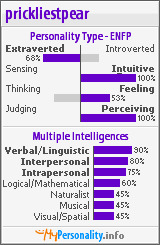As mentioned in my last post, I went to see a play called
The Last Confession last week, at the Haymarket Theatre in London's West End.
The play is, for the most part, the story of Giovanni Cardinal Benelli, the former Archbishop of Florence, who played a major role in the conclaves that elected John Paul I and John Paul II to the papacy.
Much of the story takes place during the brief tenure of John Paul I. For Benelli, the election Albino Luciani, a warm and humble man, represents a victory over the more conservative members of the curia, who were hoping to elect someone to roll back the reforms of John XXIII and Paul VI. Benelli ensures that a letter Luciani had written, congratulating the parents of the first baby conceived through
in vitro fertilisation, is circulated among the cardinal electors, demonstrating that this is someone willing to rethink some of the magisterium's teachings.
When Luciani becomes Pope John Paul I, he seems to be exactly when Benelli had hoped he would be. Much is made of the new pope's rejection of the traditional monarchical trappings of the papacy -- the papal tiara, the tradition of being carried on a throne, the very use of the word "coronation," etc. Later, when curial officials publish a statement suggesting John Paul I was celebrating the 10-year anniversary of Pope Paul VI's birth control encylical,
Humane Vitae, the pope is incensed -- that is
not something he would celebrate! The pope also ruffles some curial feathers by wandering around Rome and interacting with common people, including a Vatican gardener.
As one might expect, Benelli undergoes a crisis of faith when, after only thirty-three days as pope, John Paul I is found dead. Given that John Paul had no shortage of opponents in the Vatican, his death gives rise to suspicions among Benelli and others. When the initial Vatican reports regarding the circumstances of the pope's death and the discovery of his body are found to have been deliberate lies, Benelli feels his suspicions have been confirmed.
Now, none of this is original to the play. As far as I can tell, all of this happened in real life, although I have been unable to confirm that Benelli actually used Luciani's letter to the parents of the child conceived by
in vitro fertilisation to persuade other cardinals to vote for him (although Luciani did, in fact, write such a letter, only two weeks before the conclave). It is also well known that the Vatican lied about what John Paul I had been reading, and who found his body, ostensibly because they didn't want it known that he had been found by a nun, and that he was reading his own notes about changes he was planning regarding key Vatican personnel (instead, they said he was reading
The Imitation of Christ).
The exact cause of the pope's death is still debated to this day, but this production strongly suggests there was foul play. The fact that the Vatican refused to allow an autopsy, and the quiet sweeping under the rug of the whole matter after the election of John Paul II, have only aroused greater suspicions.
Cardinal Benelli, at any rate, is confident the pope was murdered. The question that tortures him is, what should he do with this information? He is torn between the truth on the one hand, and what his curial opponents refer to as "the good of the Church," on the other. More problematic is the fact that he knows that he was responsible for Luciani's election as pope. He put Luciani -- who is portrayed (with some exaggeration, to be sure) as an unabashed liberal -- directly into an inevitable conflict with the ruthless conservatives of the curia. If they killed the pope, mustn't Benelli accept some of the blame for having made him pope?
One of the interesting things about the play is the tension between the very human politicking that surrounds the selection of a pope, and the belief, espoused by many of the characters in the play, that the Holy Spirit is ultimately responsible for the decision.
Years before becoming pope, Cardinal Ratzinger was asked about the role of the Holy Spirit in the selection of a pope. While allowing that the Holy Spirit is involved in some limited way, Ratzinger denied that the Holy Spirit was ultimately responsible, point out that “There are too many contrary instances of popes the Holy Spirit would obviously not have picked."
(source)The Last Confession doesn't offer any answers about the perduring problem of knowing where nature ends and grace begins, but it does a very fine job of raising the question.
Labels: entertainment, Vatican






